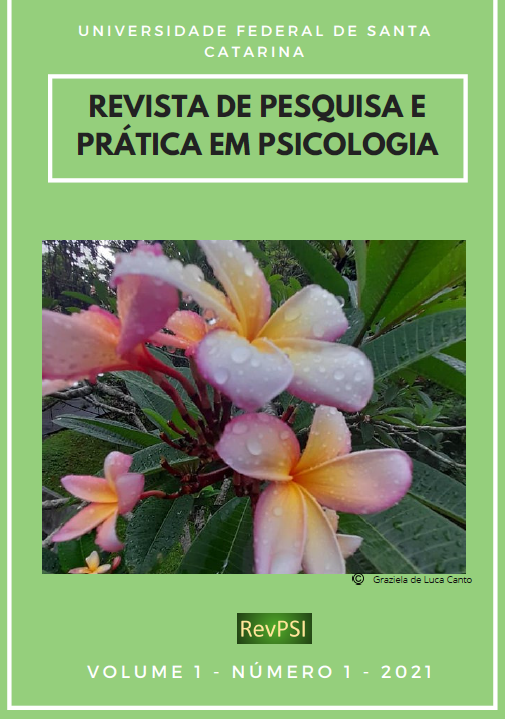Relação professor-aluno observada na série Merlí
Resumo
A relação entre aluno(a) e professor(a) mostra-se um componente essencial do processo de ensino e aprendizagem, sendo que tais relações e interações podem tomar formas diversas. A partir da observação da série “Merlí” (Netflix), puderam ser identificados aspectos subjetivos positivos e importantes para o aprendizado dos alunos, nessa relação específica entre o professor Merlí e seus alunos. Algumas questões presentes nessa relação, consideradas relevantes, foram analisadas como: a motivação provocada pelo professor, o engajamento dos alunos na sala de aula e a relação próxima entre aluno e professor dentro e fora da sala de aula. Por fim, foi possível traçar relações desses aspectos com a realidade e com as evidências científicas, demonstrando o impacto dessas questões em todos os envolvidos no processo de ensino e aprendizagem.
Referências
Bergen, P. V., & McGrath, K. F. (2020). Nurturing close student-teacher relationships. Inclusive education for the 21st Century, 296–316. https://doi.org/10.4324/9781003116073-16
Buyse, E., Verschueren, K., & Doumen, S. (2010). Preschoolers’ Attachment to Mother and Risk for Adjustment Problems in Kindergarten: Can Teachers Make a Difference? Social Development, 20(1), 33–50. https://doi.org/10.1111/j.1467-9507.2009.00555.x
Cornelius-White, J. (2007). Learner-Centered Teacher-Student Relationships Are Effective: A Meta-Analysis. Review of Educational Research, 77(1), 113–143. https://doi.org/10.3102/003465430298563
Cortes, Eduard & Fite, M. (2015). Merlí [Série]. Netflix.
Cullen, R. (2002). Supportive teacher talk: the importance of the F-move. Elt journal, 56, (2), 117–127. https://doi.org/10.1093/elt/56.2.117
Frymier, A. B., & Houser, M. L. (2000). The teacher‐student relationship as an interpersonal relationship. Communication Education, 49(3), 207–219. http://dx.doi.org/10.1080/03634520009379209
García-Moya I., Moreno C., & Brooks F. M. (2019). The ‘Balancing Acts’ of Building Positive Relationships with Students: Secondary School Teachers' Perspectives in England and Spain. Teaching and Teacher Education, 86 (102883). https://doi.org/10.1016/j.tate.2019.102883.
Hargreaves, A. (2000). Mixed emotions: teachers' perceptions of their interactions with students. Teaching and Teacher Education, 16, 811–826.
McGrath, K. F., & Van Bergen, P. (2019). Attributions and emotional competence: why some teachers experience close relationships with disruptive students (and others don’t). Teachers and Teaching, 1–24. https://doi.org/10.1080/13540602.2019.1569511
Meireles, C. D. (2015). O Papel da Motivação na Prática Docente [Trabalho de Conclusão de Curso, Universidade Federal da Paraíba].
O’Connor (2008). ‘‘You choose to care’’: Teachers, emotions and professional identity. Teaching and teacher education 24, 117–126. https://doi.org/10.1016/j.tate.2006.11.008
Redfield, D. L., Rousseau, E. W. (2015). A Meta-analysis of Experimental Research of Teacher Questioning Behavior. Review of Educational Research, 51 (2), 237-245.
Skinner, B. F. (1974). Sobre o Behaviorismo. São Paulo: Editora Cultrix
Távora, L. G., Amorim, L.T., Teixeira, J. P., Mota, H. M., Costa, T. B., & Costa, V. F. (2020). Características de um Professor Exemplar: Percepções de Estudantes e Professores. Revista Brasileira de educação médica, 44 (3),#3-7#. https://doi.org/10.1590/1981-5271v44.3-20190252
Yu, T., & Chen, C. (2012). Thinking styles and preferred teacher interpersonal behavior among Hong Kong students. Learning and Individual Differences, 22, 554–559. https://doi.org/ 10.1016/j.lindif.2012.02.002
Wilen, W. W., & Clegg, A. A. (1986). Effective Questions and Questioning: A Research Review. Theory & Research in Social Education, 14(2), 153–161. https://doi.org/10.1080/00933104.1986.10505518

